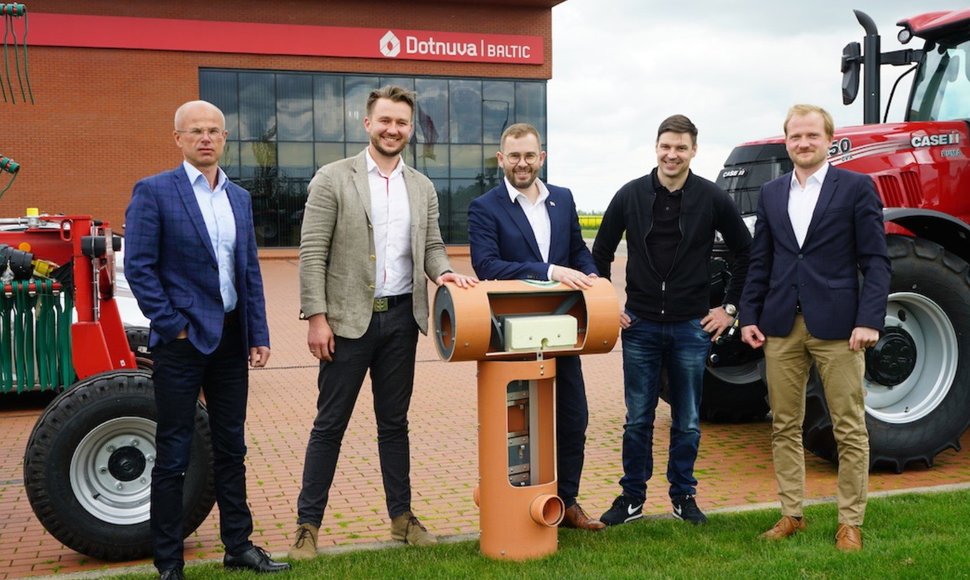Regulated drainage helps maintain suitable water levels in the soil, reduce the consequences of drought period and thus help farmers grow 20-30% larger harvests. These systems also help prevent fertilisers washing out of the soil and also contribute to reducing pollution. Regulated drainage discharge, which removes dissolved nitrogen and other nutrients, is up to 90% smaller compared to regular drainage. In the long term, this also leads to a lower need for fertiliser, which has a positive impact on reducing carbon dioxide emissions from the country’s farms.
“By interacting and cooperating with farmers working in the Baltic States, we can see that the regulated drainage system is a necessary solution both for its economic effect and due to its positive impact on the environment – reducing pollution and protecting its environs. By supplementing the existing palette of agricultural machinery, equipment and services, we will be able to match our clients’ needs even better. We believe that the experience we have accumulated and the competences we hold will allow to adapt regulated drainage systems at every farm and thus contribute to the growth of their results,” Mindaugas Veiveris, the head of the Dotnuva Baltic Project Implementation Department, says.
Jonas Steikūnas, the director of Ekodrena, notes that they chose from between a number of potential partners, who could contribute to developing the regulated drainage system business in the Baltic States: “To us, the company’s reliability and recognition, as well as long-time experience and a wide network of consultants are important aspects. We sought a partner, who would help develop regulated drainage system business in Lithuania, Latvia and Estonia. This demands familiarity with the agricultural sector, heeding the clients’ needs and helping them implement the necessary drainage solutions. By trusting product sales and advertising to Dotnuva Baltic, we will be able to focus on expanding our manufacturing capacities and developing new technologies and innovations.”
The impact and effectiveness of regulated drainage will continue to be researched in Lithuania; studies will be launched in Latvian and Estonian academic institutions.
The heads of both companies believe that by cooperating, they will help companies operating in the agricultural sector to resolve pertinent challenges. In other words, to adapt to drastic changes in climate conditions and uphold increasing environmental conservation requirements, all while creating increased economic value – earning more revenue per hectare in use.
Currently, regulated drainage systems are in use at 41 farms across Lithuania, covering a total area of over 1,000 hectares. The expectation is that the number of such farms will increase at least fivefold in Lithuania. In Latvia and Estonia, regulated drainage systems are currently only being installed for scientific purposes, the expectation is, however, that already this year, tens of farms there will adopt the technology. The investment needed for regulated drainage systems, and their return on investment is calculated per hectare, the condition of fields is evaluated and systems planned out by qualified specialists.
Ekodrena is the only company to manufacture and install regulated drainage systems in Lithuania and has patent protection across the European Union.












